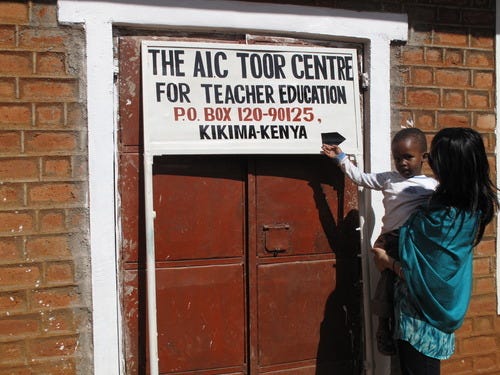The Power of Social Capital
Guest post from Rumeet Billan.
It was that time of year again – the time of year where I had to start thinking about the initiative that my for-profit organization would support. It was our nine year anniversary, and I wanted to do something special – something unique – to thank our member clients and to show appreciation to those who have continued to support us. I was also turning 30.

Each year we contribute to an initiative that helps enable opportunities in education. We’ve built primary schools, supported uniforms and textbooks, built an entire teacher training centre from start to finish, and supported a full year breakfast learning program in Canada. What we’ve found is that enabling access to education is not only aligned with our values, but it is also aligned with the values of our clients and supporters. It is a part of who we are.
While attending a conference focused on social entrepreneurship earlier in the year, I had the opportunity to meet the founder of Education Generation (now The School Fund). I took this opportunity to learn more about the organization, their story, and their processes. The organization supported full-year scholarships for students in developing countries, and had built partnerships with institutions of higher education in these areas – not an easy task. After hearing about their endeavour, it was clear that this was a vehicle that promoted access to education for students who may not have had access otherwise. After a number of phone calls and e-mails back and forth, it was decided that our organization would support 30 full-year scholarships for students in Ollantaytambo (Peru), Quito (Ecuador), and Ukwala (Kenya). I personally called it 30 by 30.
What would happen next was unexpected, and re-affirmed for me the indescribable flow that occurs in this space – something that is felt, yet so difficult to articulate. In their book Getting to Maybe, Westley, Zimmerman, and Patton (2006) suggest that “these moments of flow always have something magical about them.”
The day before turning 30, I received a call from the founder of Education Generation who explained that a company matched our contribution and that overnight the original commitment of 30 scholarships now turned into 60. They were able to connect with the social capital that they had built through their volunteers and partners to make this possible. A few weeks later, I was informed that through a crowd-funding campaign, the 60 scholarships now had the potential of turning into 120 full-year scholarships for students to further their education.
It is through this initiative where I saw the concept of social capital come to life. A concept so powerful it turned what started off as one organization supporting 30 scholarships to a number of individuals helping 120 students further their education. There is no doubt that social capital takes weeks, months, and years to build, but the impact that it can have overnight is…well, indescribable.
These scholarships will not only impact the students who receive them, but they will also impact their families, and their communities. It is through the power of social capital – mixed with a pinch of flow – that made an initiative like this possible. That to me is a magical thing.
Rumeet Billan is a social entrepreneur, educator and PhD candidate at the University of Toronto. She is the President and CEO of Jobs in Education and over the past eight years, she has contributed to school building initiatives in Africa and South America. She teaches, writes, and speaks on leadership, social entrepreneurship, and youth wellness. At the age of 25 and again at age 28, Rumeet received the honour of being named one of Canada’s Most Powerful Women. She continues to integrate her business and doctoral studies with her passion for creating change through education. @RumeetBillan
The post The Power of Social Capital appeared first on Your Mark On The World.


